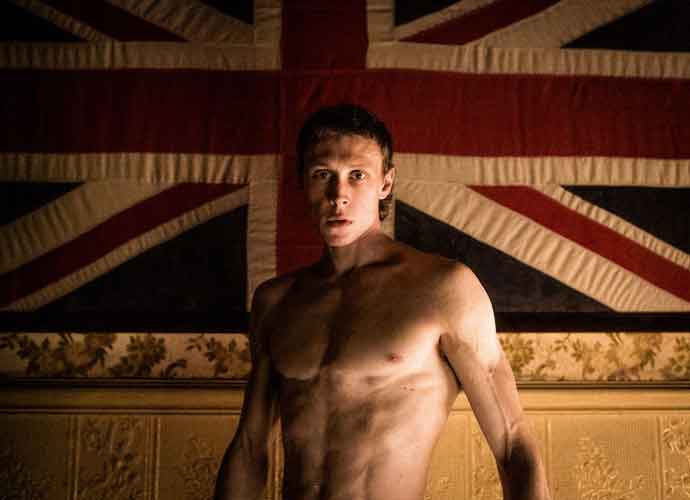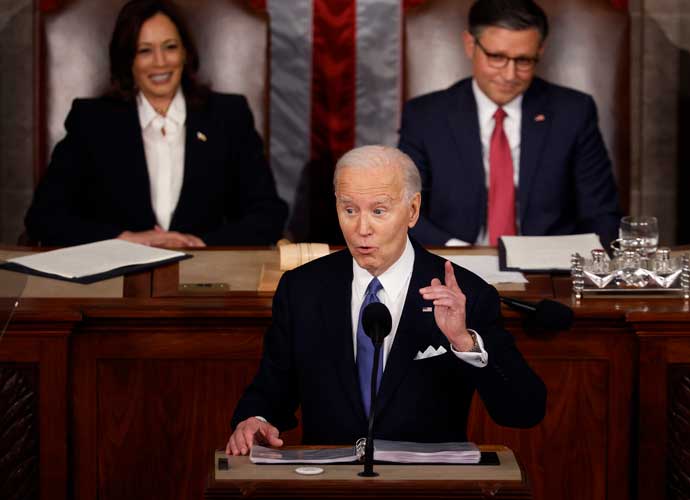‘True History Of The Kelly Gang’ Movie Review: Aussie Western Aims High, Hits Hard

4.5/5
For the last several years, the Western has been undergoing a silent renaissance. Modern directors are taking the formulae set down by genre pioneers like John Ford and twisting them around, making a number of minor masterpieces in the process. Films like Meek’s Cutoff, The Mustang, and Slow West all pay homage to classic Westerns while pushing forward, but none of them take a torch the genre like True History of the Kelly Gang does.
Director Justin Kurzel helms the adaptation of Peter Carey‘s Booker Prize-winning novel about Ned Kelly, Australia’s most famous outlaw — a cultural icon whose exploits formed much of the basis for modern Australian national identity. The film follows Ned from boyhood to manhood, tracking several key moments on his path to infamy.
Orlando Schwerdt plays young Ned, pale and unsure of his place in the near-lawless corner of the world he’s been born into. Discomforted by rumors about his father’s sexuality, Ned is forced to look to Sergeant O’Neill (Charlie Hunnam), a British colonial officer who takes advantage of Ned’s mother Ellen (Essie Davis) as the main masculine figure in his life. Ned’s hatred of O’Neill is suppressed by his family’s complete dependence upon him until the arrival of outlaw bushranger Harry Power (Russell Crowe), who introduces Ned to the lifestyle that will one day define him.
Those expecting a quick transition to Ned’s more famous criminal exploits will be deeply disappointed by the amount of time the film spends on Ned’s development — but it is precisely this focus that makes this film excellent. Ned spends the entire movie haunted by questions of identity, masculinity, sexuality, and lineage, and the seeds for these struggles are all planted brilliantly in the film’s first act.
When adult Ned does arrive, the film greets him after a multi-year stint in prison from which he has emerged as an amateur boxer. This version of Ned is played with a disarming brilliance by 1917 star George MacKay whose reticence and uncertainty in early scenes transform into a murderous self-assuredness by the film’s close.
After Ned returns to his homestead, he is greeted by all of the changes that accompany spending a decade away — adult siblings and a new fiancé for his mother — as well as a new British officer to contend with. Constable Fitzpatrick (played with a canny balance of charm and menace by Nicholas Hoult) initially seems more receptive to the Kelly family’s plight that Sergeant O’Neill before him, but the self-similar power dynamics produced by his status make any prolonged peace impossible. Only after the film is over two-thirds finished does Ned finally transform into the vicious outlaw he is known as the world over.
Kurzel seems to be deeply in touch with where the film’s artistic engine rests at any given time, adopting a relatively stripped-back directorial style for the film’s first two acts before going all-out in its conclusion. The camerawork is brilliant throughout, but only near Ned’s demise does cinematographer Ari Wegner truly pull out all the stops, ingeniously using the camera to both separate the audience from Ned’s mania and draw us deeper into his motivations.
Most criticisms that I could reasonably level at the film I could disarm in turn. The last act may be a bit overlong and gratuitous in its violence, but the character development that’s happened up unto that point makes every bullet shot feel like it has a whole film’s worth of emotion behind it. The plot may meander in some places, but the way in which its serpentine structure gives us a panoramic view of Ned’s life more than makes up for it.
A brief Google search about this film reveals much uproar and dismissal regarding its fast and loose treatment of the actual facts regarding the Kelly gang. While history buffs might take issue with the movie’s lack of objective “truth,” the insights that the movie uncovers over its two-hour runtime dig deep into what it means to be oppressed, what it means to be isolated, and how stories shape and define us well before we arrive and well after we’re gone. True History of the Kelly Gang may be a work of fiction, but the truths it reveals pay off more than any encyclopedia entry ever could.
RELATED ARTICLES
Get the most-revealing celebrity conversations with the uInterview podcast!







Leave a comment